What are the Best Small Pets for Children?
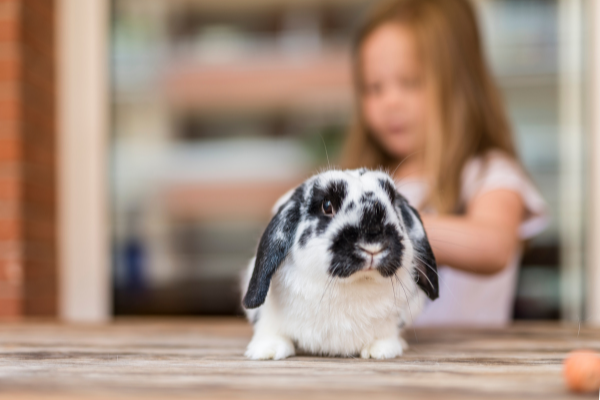
Home for life
Pets bring such a valuable addition to children’s lives. Selecting the best small pets for kids depends on selecting which is right for your family whilst carefully considering whether you can offer them a home for life.
Many kids love the cute and the cuddly. Wrap these up in a living, breathing animal and you have an opportunity for pure childhood joy alongside learning responsibility and care skills. However, many parents have never owned small pets before, or at least not since their own childhood, so what are the best small pets for kids?
Before we get started on looking at the pros and cons of the most popular small pets for kids, let us provide a word of caution. Pets should never be bought on a whim. Even if your child has been begging and pleading, and giving you the puppy dog eyes, you need to prepare and be sure. Children can be fickle, and they don’t have the same frame of reference. Therefore, you should be certain that you, yourself, are happy to look after the pet or oversee responsibility for it. This includes ensuring you’ve budgeted carefully and know how much a pet will cost you.

The most important factors to consider when buying a small pet are:
• How long will it live?
• How much space do you have?
• Does any family member have allergies (for example, to hay)?
• What does your child hope for in a pet (they won’t be satisfied with a fish if they want something cuddly, for example)?
• What time commitment do you all feel able to give?
The Best Small Pets for Kids
Checking against the questions above you can then consider the following small pets:
Rabbits
Rabbits are often the first thought, and certainly small bunnies tick the cute and fluffy agenda of small children. However, a rabbit must be considered in the long term. For a small pet they can live for a long time: between eight and 12 years. They generally need a good bit of attention and a fair bit of grooming, especially if they are longhaired. On the plus side, rabbits can be house-trained! Yes, really!
Rabbits are inherently a social species so it is recommended that you have more than one, which can mean you need to take extra care when selecting the sex. You should also be aware that rabbits are only suitable for slightly older children who can be trusted to be gentle. A rabbit that feels threatened will kick, scratch and bite and they are incredibly powerful with it. Bunnies are not guaranteed to like cuddles, which can lead to disappointment.
Cost: Buying the rabbit itself will cost you up to £50 unless you go for a specialist breed. In addition set up costs (hutch, water bottle, food dish and feed) will cost upwards of £150. The estimated annual cost of owning a bunny is £502-£1030.

Guinea Pigs
Guinea pigs are often an ideal first pet. They generally are comfortable with, and even love, being handled. They are interactive and sociable, and will squeak away contentedly when happy. Again, as with rabbits, they should be kept with at least one other of their kind. The lifespan of a guinea pig is in the region of five to seven years making them a great first pet. That said, the Blue Cross have to take in many guinea pigs as a result of children’s priorities changing as they age. Therefore do make sure you are happy to take over if your child loses interest.
Guinea pigs are often fun but they do need attention. They need a moderate amount of space to exercise and you’ll need to supplement their feed with fresh fruit and veg to ensure they get enough vitamin C.
Cost: A guinea pig will cost you around £20-30. You’ll need to cover the set-up costs of hutch, cage, water bottle, food dish and food, hay and wood shavings which will typically run at around £100-£250 to start. You’re then looking at annual costs in the region of £400-£690 for a guinea pig.


Hamsters
Hamsters can be the perfect first pet. They don’t take up much space, tick the boxes for being cute and cuddly, and can definitely be entertaining. In addition, they are relatively low cost to keep and only live for around two years. However, hamsters are delicate souls so do be sure that your child will be gentle, and listen to instructions to stop handling when requested.
It’s also important to note that hamsters are nocturnal. Therefore they can sometimes be a little disappointing for children who want to see their pet active. Additionally, it’s not sensible to locate the hamster in the child’s bedroom if you don’t want their sleep disturbed by a hamster running on their wheel or slurping noisily at their water bottle.
Furthermore, do make sure you know what type of hamster you’re getting. Syrian hamsters typically make the best hamster pet for children. Syrian hamsters are solidarity animal, so you don’t have to get more than one.
Cost: Hamsters are pretty cheap pets. You can expect to get the hamster and fully set up for comfortably under £100. Additionally, they will only cost you between £100 and £175 per year to own.
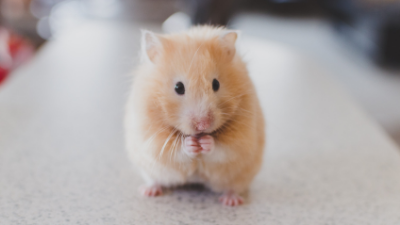
Gerbils
Generally bigger than a hamster but just as sociable and friendly, gerbils are another popular first small pet for children. Gerbils are social animals like rabbits and guinea pigs, so make sure you get at least two same-sex gerbils.
They are fastidiously clean, so this helps the owners. They are fun and characterful to watch, and as burrowing animals they make for real-life games of peek-a-boo. However, they are also zippy little things and can be tricky for younger children to hold without squeezing too hard. Therefore, if handling the pet is a priority for your child a gerbil may not be the best option.
They can be active at any time, either during the night or day, and are great for a curiously watchful child. They live for between two and four years.
Cost: The initial cost of a gerbil is low, around £5-£25. Their initial gear can also be obtained for comfortably under £100. They are also cheap to own, costing approximately £100 per year.
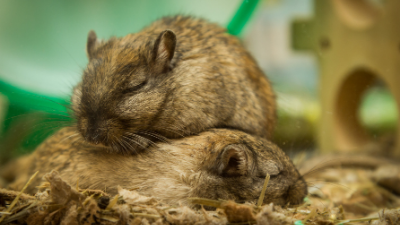
Mice
Like a gerbil, a mouse will provide lots of entertainment dashing and diving all over their cage, and your home if they get out! As a result, they fascinate children but their lively character means they aren’t cuddly pets. Once again they are sociable, so do best with a pal or two, but again therefore check the genders carefully!
Usually just living for 2-3 years they can be a good first pet. Do watch out for the gnawing though!
Cost: Mice are very low-cost pets, with similar set up and running costs comparable with gerbils.
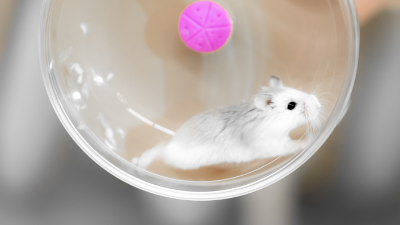
Rats
Rats are hugely underrated, especially as a first pet. Pet rats are nothing like the rodents we associate with dustbins and sewers. They adore being the centre of attention (in fact, you must be sure you can give them plenty) and will often seek out a snuggle. They do need more space than mice or gerbils, as well as faring better in pairs, but they are hugely rewarding pets to keep. They are also well known for their intelligence and can even be trained. They will usually live for two to three years.
Costs: A single pet rat will cost you around £20-£30. They will need a cage, water bottle, carrier, toys, litter, food dish and food to start with. This will cost in the region of £150 to set them up. Annual costs of pet rats are around £150 per year.


Fish
Fish may have once been handed out in plastic bags at fairs, but if you’re considering a fish as a first pet then you should be more prepared. They can be great for very young children who do not have the required dedication or attention span to do much more than feed once a day, or the understanding of gentle handling. They can be mesmerising and relaxing to watch.
Cost: The cost of owning fish varies enormously depending on the type, how many you have, and the additional items you require. Cold water fish are most suited to family living and cost less. They can be the cheapest pets.

Cats and Dogs
Many people don’t feel their family is complete until they have a cat or dog on board. However, these should very much be considered family pets (and responsibilities) and not the belongings of a child. With much longer lifespans, more complicated care requirements, and expensive vet bills they cannot be a pet of a child alone. Therefore, the parents must actively want a cat or dog before welcoming one into the home.
However, if your child is desperate for a dog then you can assuage their cries by signing up to dog walking and pet sitting schemes. BorrowMyDoggy is an ideal way for children to be involved in the care and pleasure of dog owning and exercising without the overall commitment.
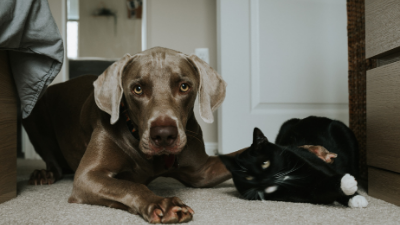
We believe your little ones deserve the very best care. That's why our local network of babysitters are personally checked and picked by our family for your family www.sitters.co.uk.
